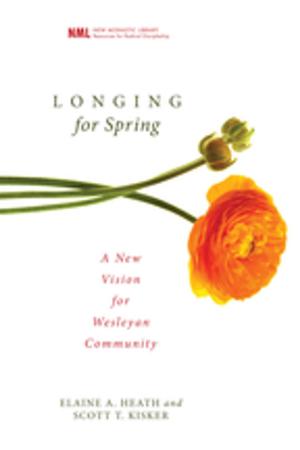| Author: | Donald Capps | ISBN: | 9781621891987 |
| Publisher: | Wipf and Stock Publishers | Publication: | September 21, 2011 |
| Imprint: | Cascade Books | Language: | English |
| Author: | Donald Capps |
| ISBN: | 9781621891987 |
| Publisher: | Wipf and Stock Publishers |
| Publication: | September 21, 2011 |
| Imprint: | Cascade Books |
| Language: | English |
Whatever religion may have meant to the boy when he was younger, in the teenage years it takes the form of a personal journey or quest. This journey is related to other aspects of his life and is integral to how he experiences himself and others. The title of this volume--Striking Out--has the connotation of the beginning of a journey that will take the boy in new directions, but it also suggests the baseball metaphor of a batter being called out on strikes. The first sense is positive; the second is negative. Together, they express the anticipatory and hopeful nature of the venture, but also the possibility that the undertaking may evoke feelings of fear, frustration, and failure. By focusing on real-life examples of teenage boys (both historical and contemporary), the book presents five typical manifestations of a boy's vulnerabilities as he sets forth on the journey: the stumbler, the struggler, the straggler, the straddler, and the stranger. It explores the ways in which these vulnerabilities may contribute in positive ways to his personal growth and his religious maturity. Throughout this book Gordon W. Allport's classic text The Individual and His Religion draws attention to the claim that a boy's religious sentiment may play a decisive role in the integration of his personality despite its inevitable disparities and uncertainties, and the real-life examples are presented as evidence that this religious sentiment provides direction and clarity of vision as the boy looks toward the future.
Whatever religion may have meant to the boy when he was younger, in the teenage years it takes the form of a personal journey or quest. This journey is related to other aspects of his life and is integral to how he experiences himself and others. The title of this volume--Striking Out--has the connotation of the beginning of a journey that will take the boy in new directions, but it also suggests the baseball metaphor of a batter being called out on strikes. The first sense is positive; the second is negative. Together, they express the anticipatory and hopeful nature of the venture, but also the possibility that the undertaking may evoke feelings of fear, frustration, and failure. By focusing on real-life examples of teenage boys (both historical and contemporary), the book presents five typical manifestations of a boy's vulnerabilities as he sets forth on the journey: the stumbler, the struggler, the straggler, the straddler, and the stranger. It explores the ways in which these vulnerabilities may contribute in positive ways to his personal growth and his religious maturity. Throughout this book Gordon W. Allport's classic text The Individual and His Religion draws attention to the claim that a boy's religious sentiment may play a decisive role in the integration of his personality despite its inevitable disparities and uncertainties, and the real-life examples are presented as evidence that this religious sentiment provides direction and clarity of vision as the boy looks toward the future.















